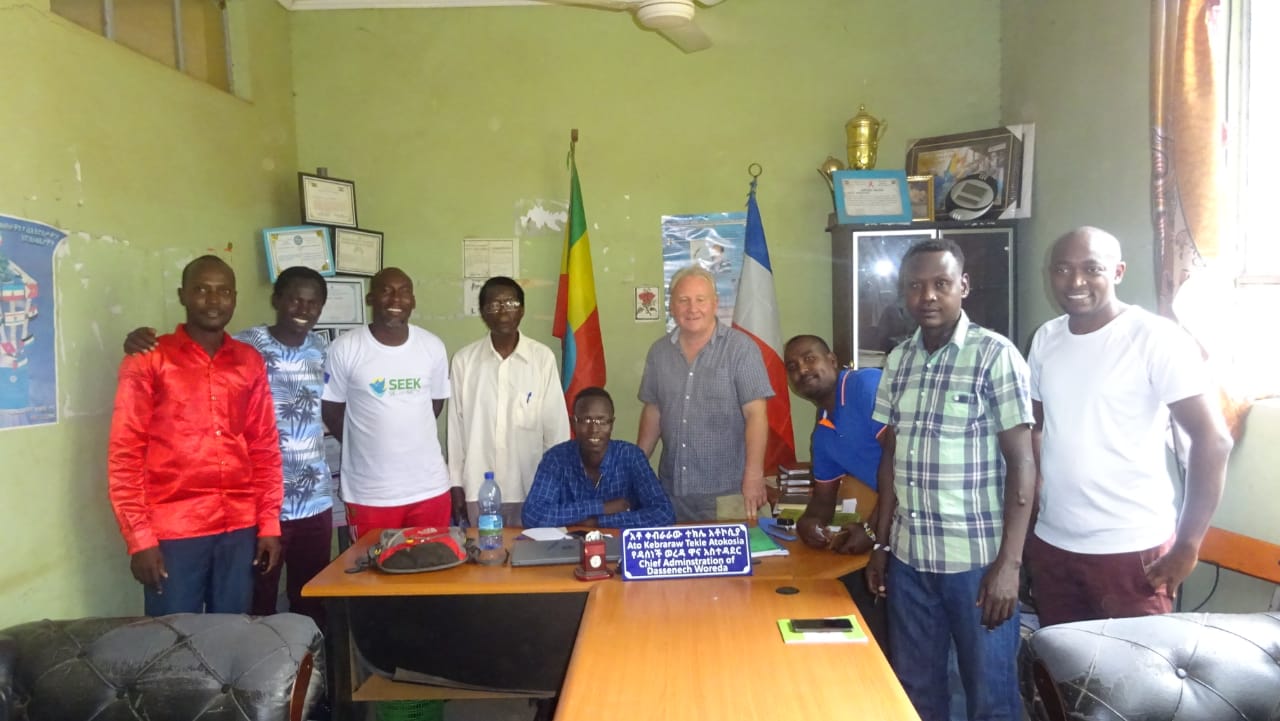Who is APReD?
APReD is a Peacebuilding and Research Consultancy firm that promotes Sustainable Peace and Development through institutional capacity development of local Community-Based Organizations (CBOs), Faith-Based Organizations (FBOs), Civil Society Organizations (CSOs), Non-Governmental Organizations (NGOs) and government agencies in Arid and Semi-Arid Lands (ASALs) in Northern Kenya region and along its international borderlines with Uganda, South Sudan and Ethiopia.
With a network of seasoned international experts and practitioners in peacebuilding, development, security, diplomacy, governance and program management, APReD is committed to the development, strengthening and institutionalization of structures, frameworks and institutions that contributes to sustainable peace and development in pastoralist communities in the Intergovernmental Authority on Development (IGAD) region.
Through its work, the institution contributes in the localization of the UN’s 2030 Agenda for Sustainable Development with greater focus on Sustainable Development Goals (SDGs) numbers 16 (Peace, Justice & strong institutions) and 17 (Partnerships for the goals).

APReD’s Approach to Peacebuilding: Holistic & Sustainable Peacebuilding
Peacebuilding entails long-term processes of addressing the underlying causes of conflicts in order to prevent, manage, resolve and transform conflicts with a grand aim of building lasting peace through a wide range of interventions. It is essentially the continuous transformation of the structures and systems that drive and sustain conflict and instability in a society. Peacebuilding has, therefore, become a popular catchphrase in contemporary peace and conflict discourses. However, in spite of its pervasiveness and the massive popularity it has garnered over the years, the concept still seems unclear as many people continue to ask questions about its meaning and history, as well as what it entails and implies for peace theory and practice.
APReD’s Holistic and Sustainable Peacebuilding Approach is a 3-legged stool that INNOVATIVELY integrates (positive) peace; (good) governance; and, (sustainable) development. The approach focuses on the establishment, strengthening and institutionalization of structures, institutions and mechanisms that SUSTAINABLY builds peace and development across the peace continuum/conflict cycle – before (prevention), during (management & resolution) and after the conflict (transformation/post-conflict reconstruction). In other words, APReD’s peacebuilding approach is a continuous process that constitutes different interventions, strategies and structures utilized by various actors in contributing towards conflict prevention, conflict management, conflict resolution and conflict transformation.
APReD believes that in order for sustainable peace and development to be realized in any society, there is need to have STRONG institutions and partnerships that embraces a COMPREHENSIVE PEACEBUILDING APPROACH that SUSTAINABLY integrates peace, governance and development interventions in their work/programming. APReD, therefore, focuses on institutional technical support and capacity development of local CBOs, FBOs, CSOs, NGOs and government agencies in order to build strong institutions and partnerships in the development, institutionalization and operationalization of policies, programs and structures that promotes Holistic and Sustainable Peacebuilding in pastoralist Arid and Semi-Arid Lands (ASALs) in Northern Kenya region and along its international borderlines with Uganda, South Sudan and Ethiopia.
APReD’s Peacebuilding Principles
Peacebuilding interventions are multidimensional in nature and strive towards integrating interventions with other relevant sectoral and disciplinary approaches, key ones being development and human security. Moreover, peacebuilding encompasses a broad range of initiatives/activities throughout the entire span of a conflict (conflict cycle); from preventive actions to post-conflict reconstruction/transformation interventions.
The roots of conflict can be found in the seven (7) inter-linked and mutually reinforcing categories of human security as defined by UNDP’s Human Development Report (1994): economic, food, health, environmental, personal, community and political securities. Without addressing these securities, peace will not be sustained and development achievements will be precarious at best.
Peacebuilding, like development, is a long-term process. There is, therefore, no ‘quick fix’ or set blueprint for peacebuilding process. Long term commitment, however, provides the space for peacebuilding to empower individuals and communities to build locally relevant sustainable strategies, structures and practices that address underlying causes of conflict and positive transformation of the same.
Peacebuilding, like development, is a people-oriented process – it is centered on those affected by the conflict and is mostly rooted in local contexts. Emphasis need to be on the strategies and interventions that are based on local needs, resources and capacities, hence empowering local communities and structures to be the ‘drivers’ of the process.
Peacebuilding can bear more valuable dividends when there is effective engagement and collaboration across all levels of leadership; grassroots, middle and top levels. Different stakeholders at different levels of leadership have their specific roles that they should play in contributing to sustainable peacebuilding process – policy development, resources mobilization, program implementation, advocacy etc.
